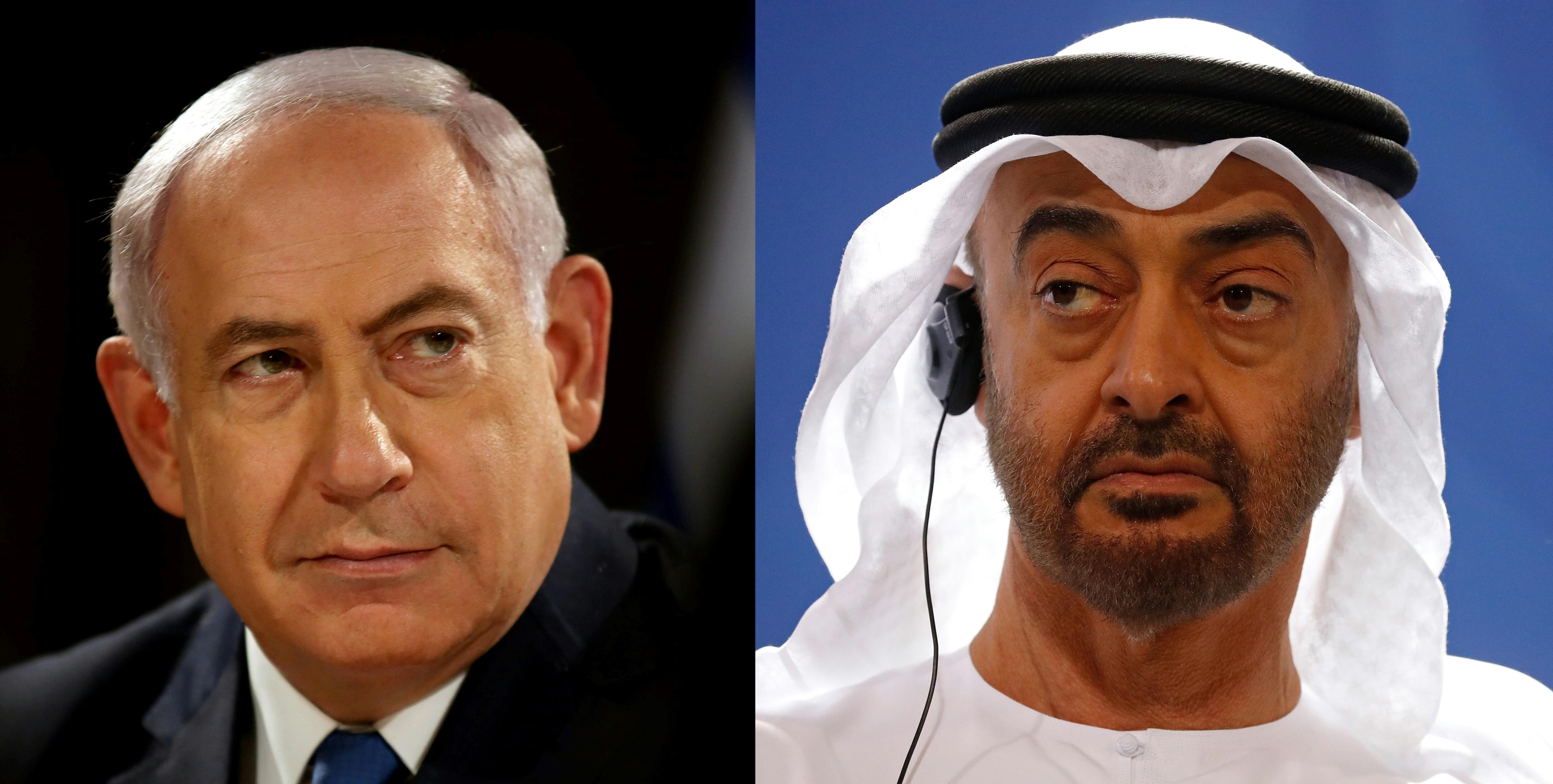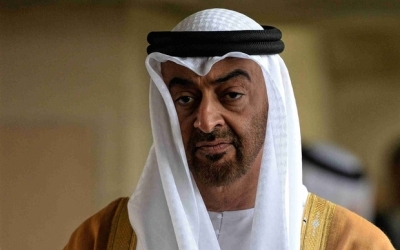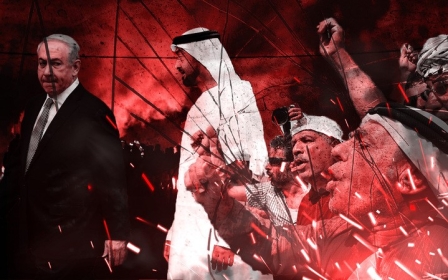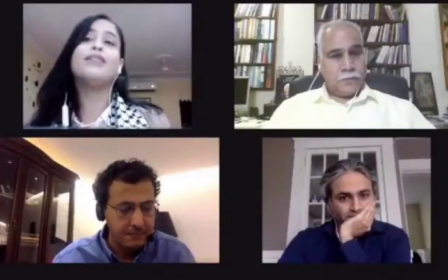Israel and UAE strike deal to normalise relations

Israel and the United Arab Emirates reached an agreement on Thursday to normalise relations, a deal slammed by the Palestinians who called it a "treacherous stab in the back".
Under the agreement, which was brokered by US President Donald Trump, Israel said it had agreed to suspend the annexation of parts of the occupied West Bank, however hours later Prime Minister Benjamin Netanyahu said he remained "committed to annexing parts of the West Bank."
Mohammed bin Zayed (MBZ), the crown prince of Abu Dhabi, tweeted: "During a call with President Trump and Prime Minister Netanyahu, an agreement was reached to stop further Israeli annexation of Palestinian territories."
"The UAE and Israel also agreed to cooperation and setting a roadmap towards establishing a bilateral relationship," he added.
The UAE will now become the first Gulf Arab state and the third Arab nation, after Egypt and Jordan, to have active diplomatic ties with Israel.
New MEE newsletter: Jerusalem Dispatch
Sign up to get the latest insights and analysis on Israel-Palestine, alongside Turkey Unpacked and other MEE newsletters
The agreement for the "full normalisation of relations between Israel and the United Arab Emirates" came after a phone call earlier on Thursday among Trump, Netanyahu and MBZ, a joint statement said.
"This historic diplomatic breakthrough will advance peace in the Middle East region and is a testament to the bold diplomacy and vision of the three leaders and the courage of the United Arab Emirates and Israel to chart a new path that will unlock the great potential in the region," the statement added.
Delegations from Israel and the UAE will meet in the coming weeks to sign bilateral agreements on investment, tourism, direct flights, security, telecommunications and other issues.
The two countries are also set to exchange ambassadors and embassies.
Netanyahu described it as "a historic day" and said in a televised address that "more Arab and Muslim countries will join this circle of peace".
Speaking to reporters in the White House, Trump also said he hoped other Muslim nations in the region would follow the UAE.
"Now that the ice has been broken, I expect more Arab and Muslim countries will follow the United Arab Emirates," he said.
'Stab in the back'
The Palestinian Authority denounced the agreement in statement, calling it "a betrayal of Jerusalem, Al-Aqsa and the Palestinian cause," and demanded its retraction.
"The [Palestinian] leadership affirms that the UAE, nor any other party, has the right to speak on behalf of the Palestinian people, nor does it allow anyone to intervene in Palestinian affairs regarding the legitimate rights in their homeland."
Hanan Ashrawi, a senior Palestinian Authority official, said Israel had been rewarded for its occupation.
"The UAE has come out in the open on its secret dealings/normalization with Israel. Please don't do us a favor. We are nobody's fig leaf!" she tweeted.
"May you never experience the agony of having your country stolen; may you never feel the pain of living in captivity under occupation; may you never witness the demolition of your home or murder of your loved ones. May you never be sold out by your 'friends.'"
Awni Almashni, an official in Palestinian President Mahmoud Abbas' Fatah movement and activist based in the West Bank city of Bethlehem, told Middle East Eye that peace in the region could only come by addressing the problems faced by the Palestinians.
"The agreements Israel is trying to reach with Muslim and Arab countries are a way to go around the Palestinian issue and to avoid it, but any peace plans with any Arab country is only an illusion and won't solve the main problem here between Israel and Palestine," he said.
'Israel has tried in the past to build peace with some Arab countries, but we know that Israel hasn't achieved any kind of peace in the region'
- Awni Almashni, Fatah movement
"Israel has tried in the past to build peace with some Arab countries, but we know that Israel hasn't achieved any kind of peace in the region."
Almashni noted that annexation had been frozen through the Palestinian people and international community's outright rejection of Israel's plan, long before Thursday's announcement.
He said linking annexation with the UAE deal "is an attempt to sell the agreement with Israel as an achievement, and its not".
Hamas, the Palestinian movement that rules the Israeli besieged Gaza Strip, called the Emirati deal "dangerous".
"The agreement between Israel and the UAE is a dangerous development in the pace of normalisation, and a treacherous stab at the sacrifices of the Palestinian people," it said.
The Gaza-based Popular Resistance Committees said that the agreement "reveals the size of the conspiracy against our people and our cause".
"We consider it a treacherous and poisonous stab in the back of the nation and its history," the group added.
Islamic Jihad, another resistance group operating out of Gaza, also condemned the pact. "Whoever does not support Palestine with a bullet should be ashamed of himself," it said.
Meanwhile, the National Democratic Alliance - also known as the Balad party - said the decision "encourages Israel to continue with its existing policies... that deny Palestinians their legitimate historical rights.
"The UAE has officially joined Israel against Palestine, and placed itself in the camp of the enemies of the Palestinian people."
Annexation 'still on the table'
Netanyahu and his right-wing allies had sought to begin the process of annexing large swathes of the occupied West Bank last month, but faced resistance internationally and within the country's coalition government.
Still, during his televised address, Netanyahu said annexation was "still on the table" and that it was something he is "committed to".
Meanwhile, Anwar Gargash, UAE minister of state for foreign affairs, said the peace deal was struck "to preserve the chances of a two-state solution".
Thursday's agreement, which received no Palestinian input, effectively kills off the Arab Peace Initiative - a 2002 scheme re-endorsed by the Arab League in 2017 that offers widespread recognition of Israel in return for it retreating to its 1967 borders and addressing the issue of Palestinian refugees.
Since Netanyahu has assumed office, Israel has been covertly developing relations with Gulf Arab states. The prime minister has often touted it as one of his chief achievements, particularly in the run-up to elections.
Israeli officials, including senior ministers, have visited Abu Dhabi and Dubai in recent years despite the UAE not recognising Israel until Thursday's announcement.
Last month, two Israeli defence behemoths signed a landmark agreement with an Emirati tech firm specialising in artificial intelligence.
Meanwhile, Emirati jets have flown direct to Tel Aviv's Ben Gurion airport to unload coronavirus medical aid intended for the West Bank and Gaza. Palestinian authorities rejected the Emirati aid, labelling it as the latest example of normalisation between Israel and the UAE.
This article is available in French on Middle East Eye French edition.
Middle East Eye delivers independent and unrivalled coverage and analysis of the Middle East, North Africa and beyond. To learn more about republishing this content and the associated fees, please fill out this form. More about MEE can be found here.





